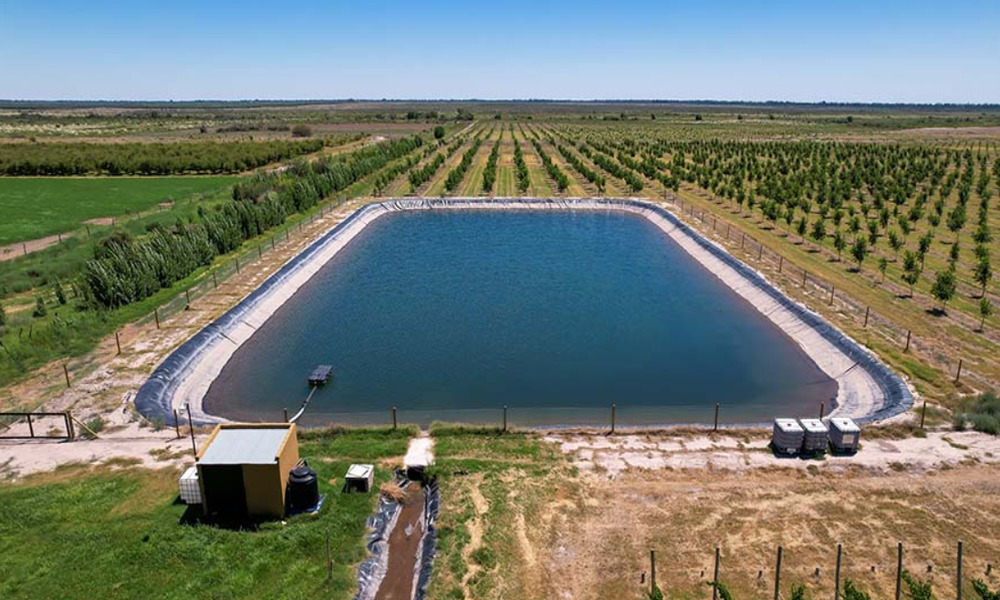Among smart agricultural practices, the rising use of irrigation storage ponds reflects a shift to reliable, conscious courses of action. As populations everywhere continue to grow, the demand for quality food, fabrics, and much more also increases. For that, sustainable agriculture is a must.
Unfortunately, skyrocketing public requirements can put a significant strain on our water resources Agriculture accounts for a dominant chunk of global freshwater withdrawals. In order to meet this demand sustainably, it is important to use water efficiently and effectively.
8 Main Benefits Of Utilizing Irrigation Ponds
One way to achieve this is by using storage ponds for a more economically and logistically feasible agricultural approach. Let’s discuss the benefits of using these ponds for agrarian purposes.
1. Controlled Water Consumption
Storage ponds allow for controlled water consumption throughout the year for a range of applications. By capturing and storing water during the rainy season, farmers can irrigate their crops during the dry season.
That way, their productivity experiences no ill effects from natural water scarcity. This ensures that water is used efficiently and effectively, reducing wastage and saving on costs.
2. Safe Water Treatment
Irrigation ponds provide a safe and effective way to treat water for agricultural use. By storing water in ponds, it is possible to use natural processes such as sedimentation, aeration, and biological remediation.
This effectively removes a lot of biological and inorganic contaminants and improves water quality. The resulting effluent helps to protect crops from diseases and ensures that the food produced is safe for consumption.
3. Better for Preserving Lands
Making the most of irrigation \ponds for agriculture also helps to preserve the natural landscape. Traditional irrigation methods such as flood irrigation can lead to soil erosion and land degradation. Storage ponds reduce such events as well as their immensely damaging effects, thus preserving the landscape.
4. Keeps Food Chains Intact
From an ecological perspective, storage ponds also help to keep food chains intact. By reducing the need for water diversion from rivers and streams, fish populations are protected. Plus, the responsible use of water means that natural reservoirs are untainted, This ensures that ecosystems remain healthy and functioning.
5. Suited for Crop Longevity
Storage ponds are also suited for crop longevity. By providing a consistent and reliable source of water, crops can grow and mature over an extended period of time. This ensures a more stable and consistent yield, which is beneficial for farmers and helps to maintain food security.
6. No Need for Exposed Water Channels
Conventional irrigation practices might be tried and tested. Unfortunately, they have a tendency to reshape the land they’re applied on, usually leaving it agriculturally worse for wear.
The use of storage ponds also eliminates the need for open water resources and land-degrading channels. This reduces the risk of contamination and pollution, which can affect both human health and the environment.
7. Saves On Energy
Irrigation ponds also save on energy by helping particular regions establish their own native reservoirs. By reducing the need for pumping water over long distances, energy costs are reduced. This turns out to be financially beneficial for farmers and helps to reduce greenhouse gas emissions.
8. Supports Local Ecosystems
The use of irrigation ponds supports local ecosystems. By reducing the need for water diversion from rivers and streams, wetlands and other natural habitats are preserved. This helps to maintain biodiversity and ecosystem health, which benefits crops as well.
Conclusion
It’s clear that the use of irrigation storage ponds for agriculture has numerous benefits for meeting demands sustainably. From controlled water consumption to supporting local ecosystems, these ponds are a key tool in achieving sustainable agricultural goals.
By using these ponds, farmers can ensure that their crops are grown in a much more environmentally responsible manner. This is essential for ensuring long-term food security.





